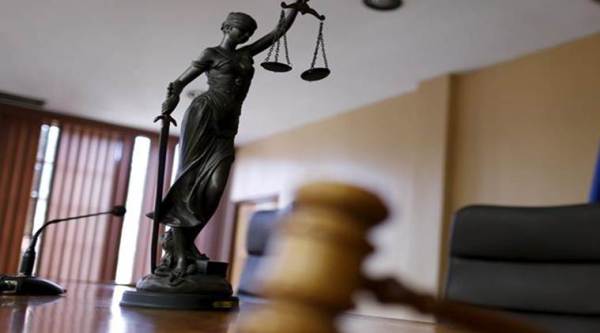A tribunal, headed by Delhi High Court judge Justice Mukta Gupta, is conducting hearings in different cities to ascertain whether there was sufficient evidence to ban the Students Islamic Movement of India (SIMI).

The ban on SIMI
SIMI, an Islamic fundamentalist organisation, which seeks ‘liberation of India’ through conversion of the country into an Islamic land, was founded in Aligarh in April 1977 as the student wing of the Jamaat-e-Islami Hind. It later spread its network in various states, including Maharashtra.
Due to the alleged involvement of SIMI members in several terror cases in the country, a ban was imposed on the organisation in 2001 under the Prevention of Terrorism Act (POTA). SIMI was declared an unlawful group under section 3 of the Unlawful Activities Prevention Act (UAPA), 1963.
The ban on SIMI was extended periodically, except in 2008 when it was lifted following orders by a special tribunal presided by Justice Geeta Mittal. But the ban was imposed again by the Supreme Court on August 6, 2008, on the grounds of national security.
The five-year ban imposed on SIMI in 2014 came to end on January 31 this year. The central government then issued a notification extending the ban on SIMI for a period of five more years starting February 1, 2019, under the UAPA. While extending the ban, the Home Ministry listed, in the notification, as many as 58 cases in which members allegedly belonging to SIMI were involved.
Why the Tribunal was constituted
There are about 40 outfits in the country, including SIMI, that have been banned under UAPA. Under Section 4 of the UAPA, if any association or outfit is declared unlawful and banned, the central government is mandated, within 30 days from the date of the publication of the notification, to refer the notification to a tribunal for the purpose of adjudicating whether or not there was sufficient cause for declaring the association unlawful.
Story continues below this ad
Accordingly, following its notification of February 1, 2019, extending the ban on SIMI for a further period of five years under UAPA, the government constituted a tribunal under Justice Mukta Gupta on February 21. Additional Solicitor General Pinky Anand and senior lawyer Sachin Datta are also members of the tribunal.
Information about the constitution of the tribunal was published in newspapers across the country. It had invited organisations, government agencies and general public to file affidavits with relevant information. Several affidavits have been filed before the tribunal by police and public.
The hearings
Individuals or organisations arguing against the ban are given an opportunity to submit their say and cross-examine those who have filed affidavits supporting the ban. About 50 affidavits have so far been filed before the tribunal, of which only two came from the public, including one from a former general secretary of SIMI in Uttar Pradesh and another by Pune-based Anjum Inamdar of Mulnivasi Muslim Manch.
The tribunal has been conducting hearings on the affidavits in various cities. Advocate Rajesh Ranjan, a lawyer representing the Ministry of Home Affairs before the tribunal, said that so far,hearings had taken place in Delhi, Tamil Nadu, Telangana and Maharashtra. Hearings will be conducted in other states as well.
Story continues below this ad
According to Ranjan, the tribunal is supposed to pass its order within six months of its constitution, that is, before July 31.

 Earlier this month, the tribunal had held hearings in Pune. On Friday and Saturday, it had sittings in Aurangabad. (Image for representational purpose only)
Earlier this month, the tribunal had held hearings in Pune. On Friday and Saturday, it had sittings in Aurangabad. (Image for representational purpose only)






